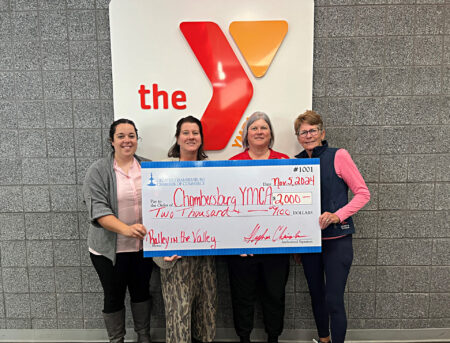PHILADELPHIA – Department of Human Services (DHS) Acting Secretary Meg Snead, members of the Women’s Health Caucus, and representatives from community organizations have affirmed that Pennsylvanians should feel safe in accessing the full scope of reproductive, perinatal, and maternal health care available to them and that supports are in place to help mothers and birthing people access necessary reproductive and perinatal care.
“Since Roe v. Wade was overturned, we have seen an influx of people from other states seeking reproductive care in Pennsylvania,” said Acting Secretary Snead. “Your ZIP code should not determine your ability to get health care in this country, but that is the reality that we’re living in. We want our fellow Pennsylvanians to know that abortion remains safe and legal here, and that services and help paying for reproductive and pregnancy-related health care is available.”
DHS administers the federal Medicaid program in Pennsylvania. Through Medicaid and DHS’s Family Planning Services, individuals can receive free or reduced cost reproductive health care. This care may include health care provider visits, birth control, testing and treatment for sexually transmitted infections (STIs), screening and education for some types of cancer, and counseling from a health care provider about pregnancy, such as preparing for pregnancy, preventing unintended pregnancies, and enabling individuals to control the timing and spacing of pregnancies. No public funds are used for abortions except in cases of rape, incest, or when the life of the pregnant person is in danger.
“The Women’s Health Caucus is bicameral and bipartisan. Our legislation sees women through the lens of equality, and our members focus on many issues that affect women’s lives including maternal mortality, childcare, minimum wage, domestic violence, sex education, and so much more,” said Representative Mary Jo Daley. “We are proud to work with the Wolf Administration on initiatives that improve the lives of women, parents, families, and communities. This includes the Medicaid postpartum extension, which allows moms and people who give birth to get the care they need for themselves while they are caring for their babies.”
“With providers in the Commonwealth facing an influx of patients from across state lines and our own residents having to prolong care or travel to seek care elsewhere, Pennsylvanians are facing serious repercussions, and if we don’t act now even more is at stake,” said Rep. Morgan Cephas. “While we are working hard to protect and expand access to reproductive healthcare in the commonwealth, we also have a duty to ensure that residents across the state understand what is available to them, and that they understand what they can do to help turn things around. I am thankful to the Department for recognizing the need to connect directly to communities and look forward to continued efforts to spread the word.”
The Medicaid postpartum coverage period was extended for mothers and birthing people who are eligible for the program because of their pregnancy to one year following the end of a pregnancy. Previously, people eligible for Medicaid due to their pregnancy received coverage for only 60 days after giving birth. Nationally the Medicaid program pays for one in every four births. Last year, Medicaid covered nearly 44,000 births in Pennsylvania.
More information on the postpartum Medicaid extension, and DHS’ maternal-child health programs available across Pennsylvania is available online here.
To learn more and apply for Medical Assistance and other assistance programs in Pennsylvania, visit www.dhs.pa.gov/compass.






















